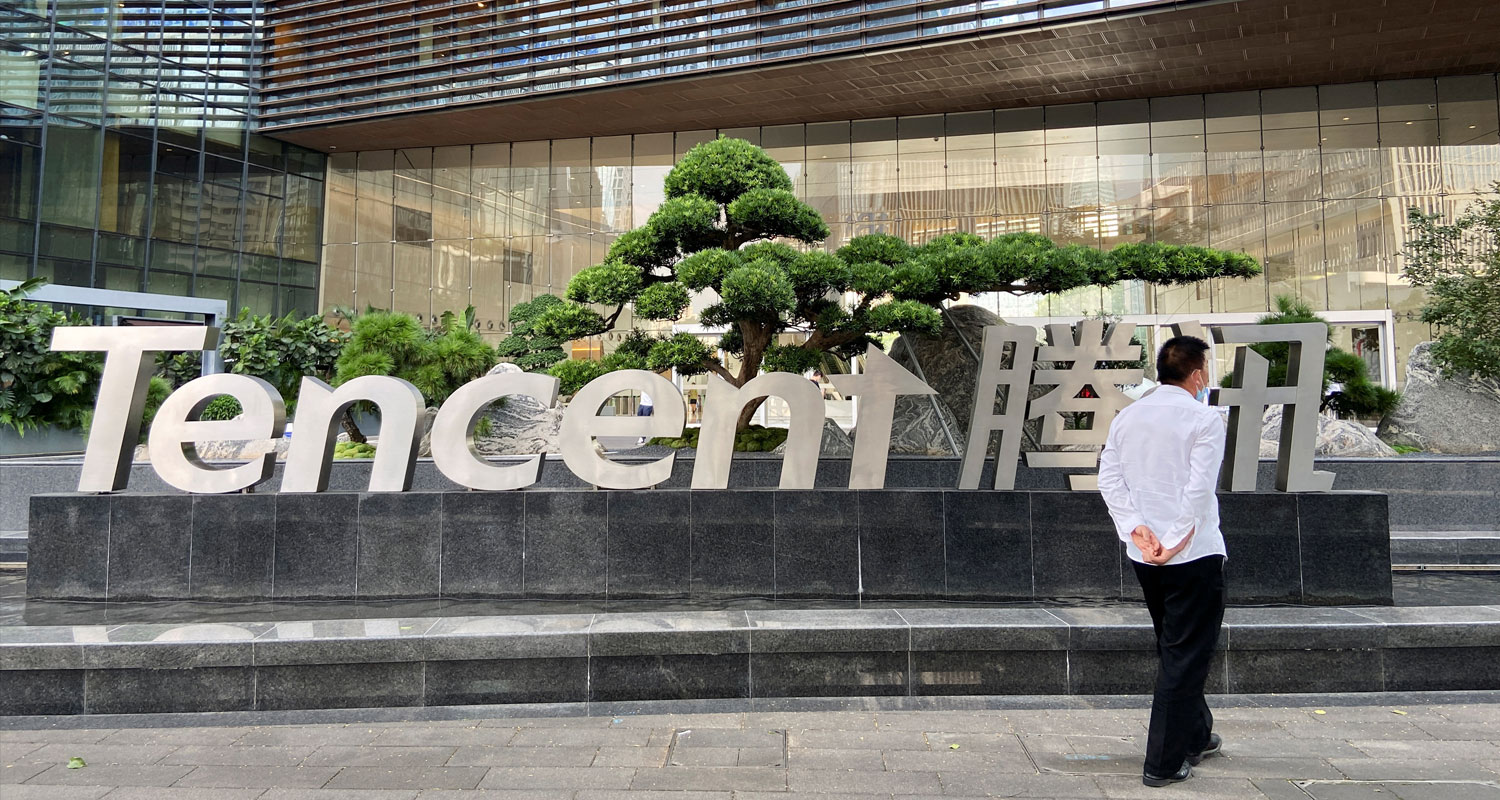
Shares in Chinese tech giants Alibaba Group and Tencent Holdings as well as in chip makers slumped on Monday, as investors were spooked by new US export control measures aimed at slowing Beijing’s technological and military advances.
The Joe Biden administration published a sweeping set of export controls on Friday, including a measure to cut China off from certain semiconductors made anywhere in the world with US equipment.
The raft of measures, some of which take immediate effect, could amount to the biggest shift in US policy towards exporting technology to China since the 1990s.
Experts said the new rules will have a broad impact, slowing China’s efforts to develop its own chip industry and advance commercial and state research involving military weapons, artificial intelligence, data centres and many other areas that are powered by supercomputers and high-end chips.
The new controls also come at a time when the global chip industry is already facing major headwinds from tumbling demand post-Covid-19 in computers, smartphones and other electronic devices and has warned of weak revenue.
The most immediate impact is likely to be felt by Chinese chip makers, they said.
Under the new regulations, US companies must cease supplying Chinese chip makers with equipment that can produce relatively advanced chips – logic chips under 16 nanometres, DRAM chips below 18nm and NAND chips with 28 layers or more — unless they first obtain a licence.
That’s set to affect China’s top contract chip makers — Semiconductor Manufacturing International (SMIC) and Hua Hong Semiconductor — as well as state-backed leading memory chip makers Yangtze Memory Technologies (YMTC) and Changxin Memory Technologies (CXMT).
Hobble
“The measures will hobble the Chinese chip sector and will scupper numerous growth plans and potentially set back innovation in both the East and the West,” said Danni Hewson, an analyst at AJ Bell. “There will be plenty of boardrooms hosting top-level meetings over the next few days considering the implications of US export controls.”
Chinese foundries have a fraction of the global contract chip market, which is dominated by Taiwan’s TSMC, but they control about 70% of the domestic market, underscoring Beijing’s efforts to boost self-sufficiency in chips.
In memory chips, industry watchers have pegged YMTC and CXMT as China’s best hopes for breaking into the global market, going neck and neck with top players such as Samsung Electronics and Micron Technology.
The new regulations will now pose major hurdles for the two Chinese memory-chip makers, analysts said.
“The advancement of memory will be limited as there is no opportunity to upgrade process equipment, no opportunity to expand production, and the market will be lost,” Gu Wenjun, who leads research at Shanghai-based consultancy ICWise, wrote in a research note.
The blocking of equipment supplies for high-end chip production could also have a cascading impact on simpler chips, analysts said.
 Stewart Randall, who tracks China’s semiconductor sector at Shanghai-based consultancy Intralink, said that for NAND chips, the same equipment used to produce 128-layer NAND can also produce simpler 64-layer NAND.
Stewart Randall, who tracks China’s semiconductor sector at Shanghai-based consultancy Intralink, said that for NAND chips, the same equipment used to produce 128-layer NAND can also produce simpler 64-layer NAND.
China’s foreign ministry spokesman Mao Ning on Saturday called the move an abuse of trade measures designed to reinforce the US’s “technological hegemony”.
US toolmakers now required to halt shipments to wholly Chinese-owned factories producing advanced logic chips include KLA, Lam Research and Applied Materials, which pushed their shares down about 4% and 8%. The Philadelphia semiconductor index fell 3.4%.
In advanced AI chips — Nvidia and AMD — which are among the major vendors supplying to China, slipped about 3% each. “This could hardly come at a worse time for Nvidia given that it’s already faced a highly challenging period due to supply-chain snarl-ups and slowing demand for gaming consoles,” said Susannah Streeter, an analyst at Hargreaves Lansdown.
The rules also include blocking shipments of a broad array of chips for use in Chinese supercomputing systems which can be used to develop nuclear weapons and other military technologies.
The rules include blocking shipments of a broad array of chips for use in Chinese supercomputing systems
Some industry experts say the ban could also hit commercial data centres at Chinese tech giants. Shares in e-commerce company Alibaba and social media and gaming company Tencent, both of which rely on data centres extensively, dropped 3.3% and 2.5%, respectively.
A steep decline in tech shares led China’s market down on its first post-Golden Week holiday trading on Monday. An index measuring China’s semiconductor firms tumbled nearly 7%, and Shanghai’s tech-focused board Star Market declined 4.5%.
SMIC dropped 4%, chip equipment maker Naura Technology Group sank 10% by the daily limit, and Hua Hong Semiconductor plunged 9.5%.
Shares in AI research firm SenseTime and surveillance equipment maker Dahua Technology, which will be cut off from chips made using US technologies, tumbled 5.7% and 10%, respectively.
Analysts expect the impact on TSMC, the world’s top contract chipmaker, to be limited as most of its advanced chip orders comes from US-based customers such as Apple and Qualcomm, although it generates around 10-12% of its revenue from China.
South Korea on Saturday also expected no significant disruption to equipment supply for Samsung and SK Hynix’s existing chip production in China. — Josh Horwitz and Jason Xue, with Anisha Sircar and Medha Singh, (c) 2022 Reuters

